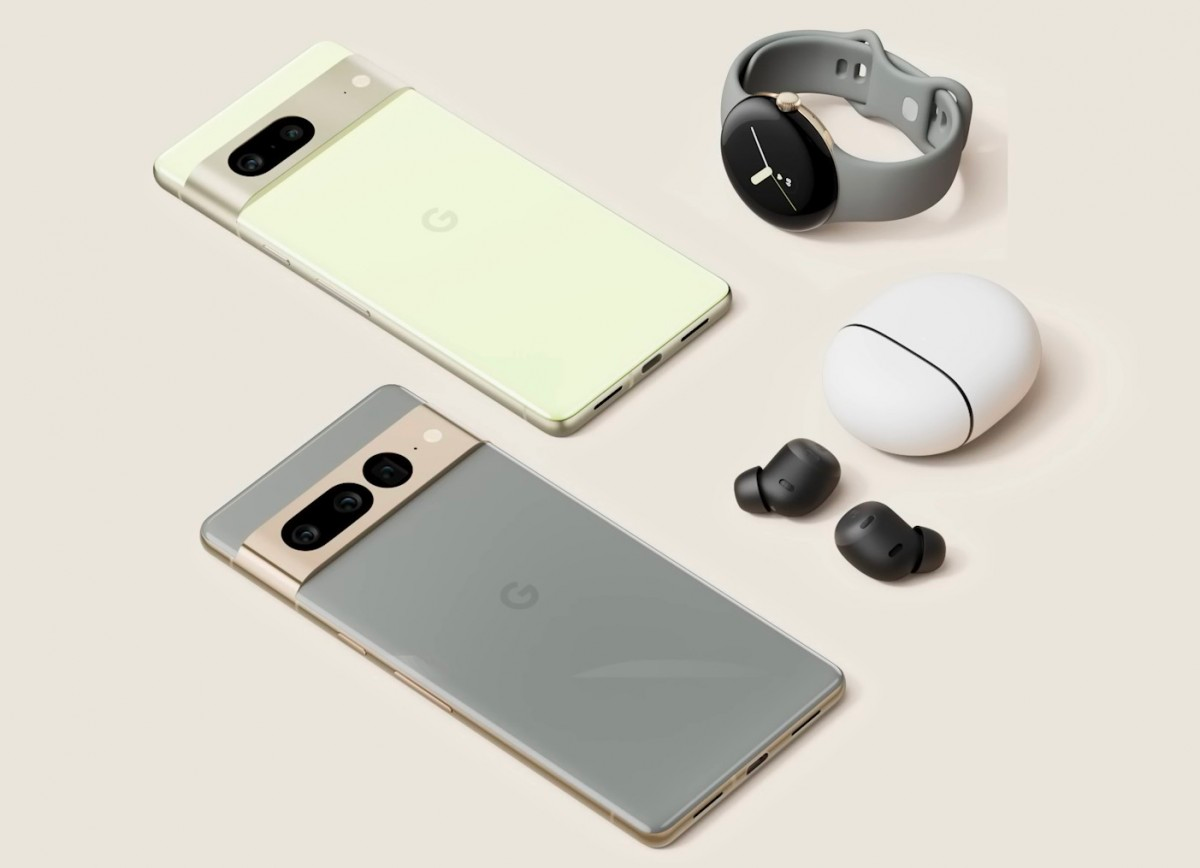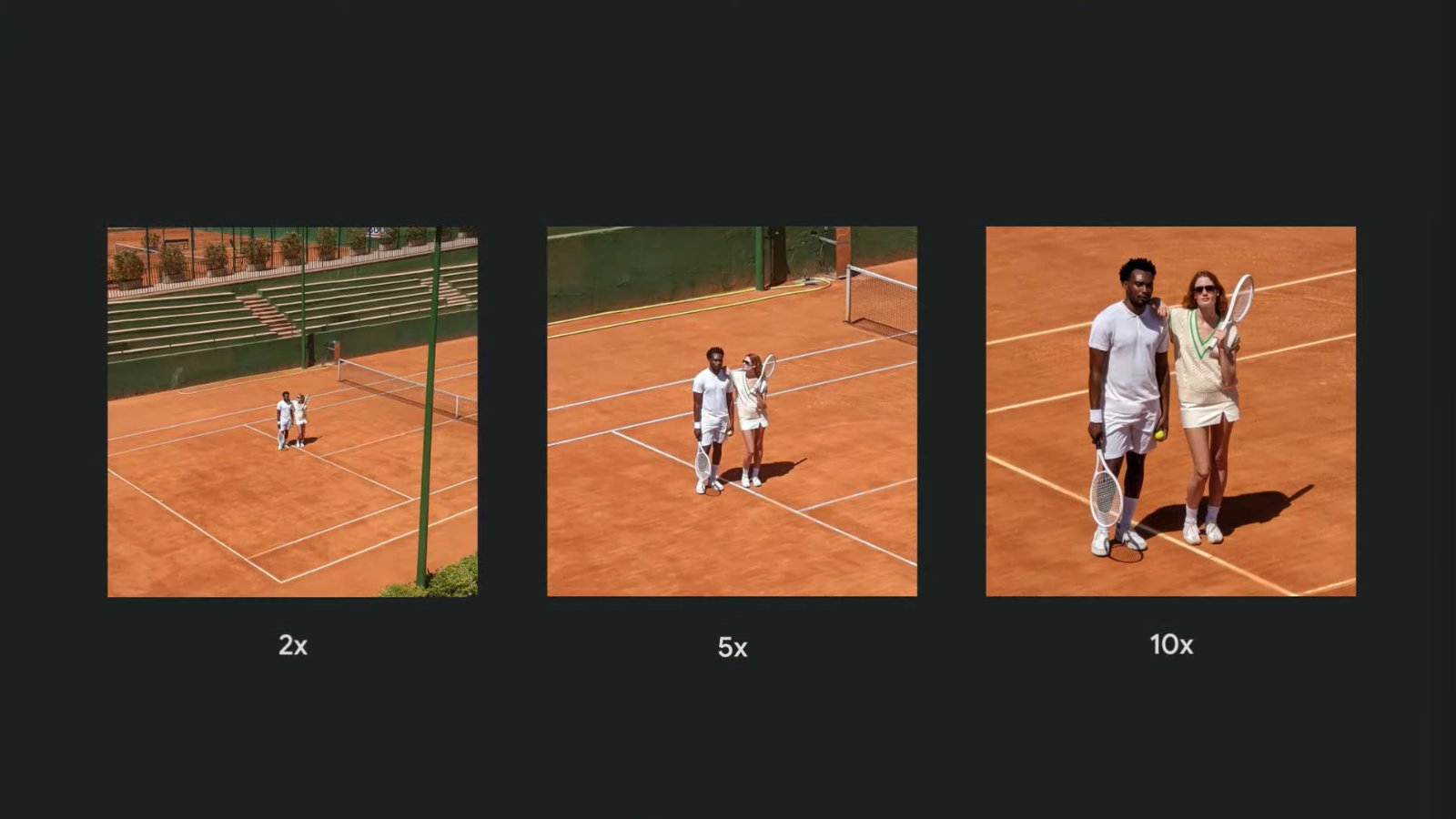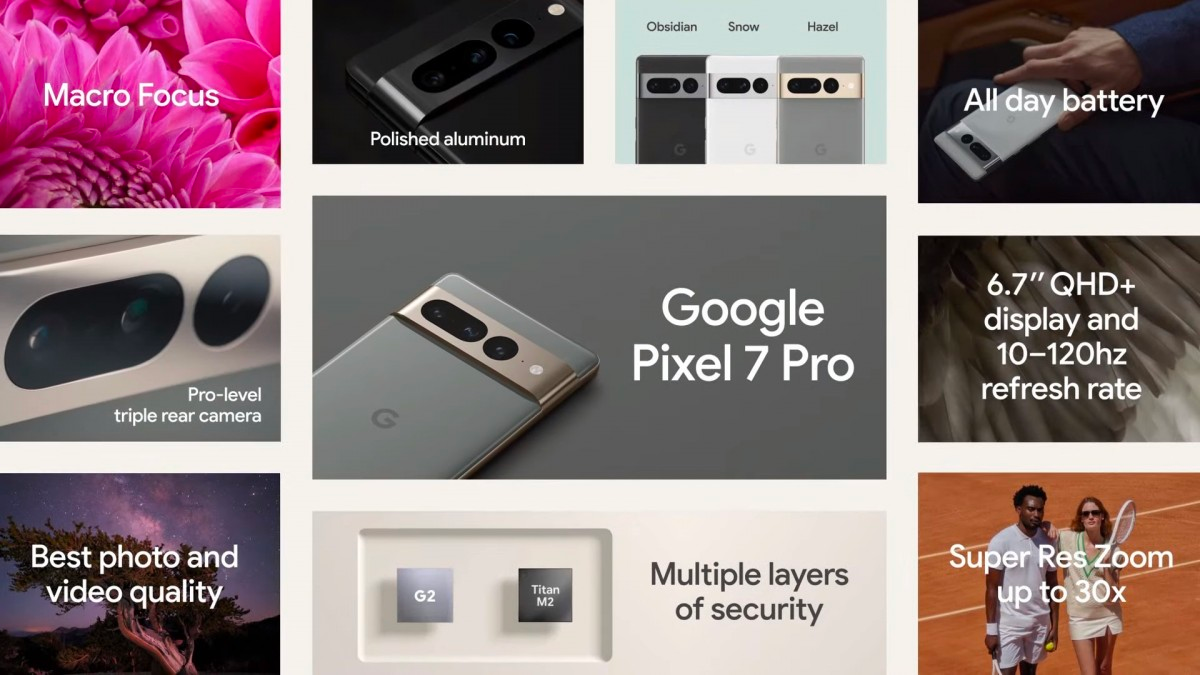Pixel 7 and 7 Pro are not far from their predecessors in terms of appearance and technical characteristics. The screens are about the same size (6.7 inches for the Pro model) and have similar technical characteristics to the Pixel 6 series, with a refresh rate of 90 Hz for the Pixel 7 and 120 Hz for the Pro. We detected a change in the brightness of the Pro model, which according to Google is 25% higher than the Pixel 6 Pro. The aluminum used in the body of the device is completely recycled while the tape on the camera, which is made of glass, is turned into metal.

Both smartphones are powered by Google’s second generation Tensor chip, the G2. The company claims that the new processor will enable voice recognition and more advanced machine learning functions. This should translate into faster and more efficient pixels, especially for processing-intensive tasks related to image and image processing.
Two of the three camera sensors on the Pixel 7 Pro are almost identical to those we saw on the Pixel 6 Pro. Once again, there’s a 50MP ultra-wide camera, with an f/1.85 aperture, and a 12MP ultra-wide angle camera, with an f/2.2 aperture. The latter comes with a 125.8-degree field of view, an upgrade from last year’s 114-degree wide-angle Pixel camera.
However, the telephoto lens has been significantly upgraded. The 48MP sensor features a 5X optical zoom and 30X Super Res Zoom (up from last year’s 20X zoom) that combine multiple exposures to improve the final image quality. Up front, we now have a 10.8MP camera with a larger sensor, which means selfies in less light places will look better.

Google also announced that it is turning Face Unblur, which was a Pixel-exclusive feature, into a Google Photos-based service called Photo Unblur. According to the company, there will still be “special improvements” for devices equipped with the Tensor chip, which is also true in the case of the new Pixels, which will feature functionality exclusively on smartphones. Night Sight has also been improved on the new Pixel smartphones so users don’t have to sit still for long, with a more efficient multi-frame capture process.
In terms of video, a lot has been achieved by the fact that every camera on Pixel 7 smartphones can shoot in 4K resolution at 60 frames per second, with 10-bit HDR support. There’s also a new 24fps motion blur cinematic mode that includes background blur for a more cinematic effect like the iPhone’s cinematic mode.
The impressive software ads don’t stop here as Google Message users get a dedicated message typing feature – a feature that was available in Google Meet – while Clear Calling, a feature expected later this year, will reduce device user noise in the background. There’s also a new two-factor biometric authentication (2fa) method debuting on the new Pixels, which relies on both a fingerprint sensor and facial recognition.

Very significant is the fact that for the first time, Google is expanding its policy of releasing its security updates which will now last for at least five years, a decision in line with Samsung’s flagship models. However, at the moment, we don’t know if there will be an increase in the years that a new Pixels owner will be able to upgrade to the latest version of Android. Also, for new Pixels owners, a free VPN will be implemented through Google One.
On the security front, Google has included a security chip, the Titan M2, along with fingerprint and face unlock functions. Similar to its predecessor, the Pixel 7 Pro packs a 5,000mAh battery and can quickly charge up to 50% in about half an hour, but you’ll need to purchase a compatible 30W charger separately.
Pricing remains the same as it was on the Pixel 6 series a year ago, as Google did not follow Apple’s tactics. The Pixel 7 in Europe will cost from 649 euros (depending on the region), while the Pixel 7 Pro will start from 899 euros. Greece is also far this year from Google’s plans for the availability of its devices, which means that those interested will have to look for other distribution channels.

“Total alcohol fanatic. Coffee junkie. Amateur twitter evangelist. Wannabe zombie enthusiast.”





More Stories
Is this what the PS5 Pro will look like? (Image)
Finally, Windows 11 24H2 update significantly boosts AMD Ryzen – Windows 11 performance
Heart Surgeon Reveals The 4 Things He ‘Totally Avoids’ In His Life